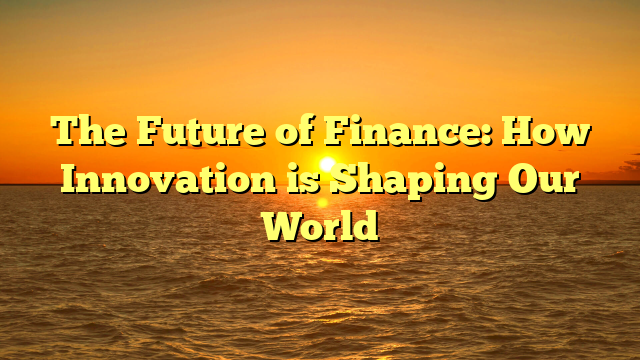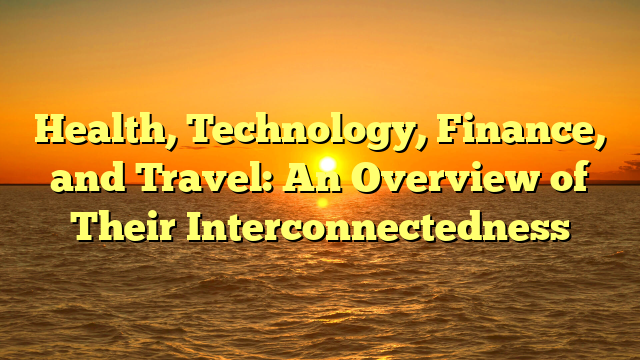As we move deeper into the 21st century, the convergence of finance, technology, artificial intelligence, and health is driving global innovation. This article will explore how these domains are interconnected and their mutual influence on human advancement.
1. Financial Technology (FinTech): Revolutionizing the Economy
Financial technology, or FinTech has disrupted traditional banking in numerous ways.
Consumers now expect instant access to their transactions. With mobile banking apps like PayPal, sending funds can be done in seconds.
Cryptocurrency are gaining popularity as new financial instruments, offering decentralization.
FinTech also enables AI-powered recommendations. Platforms like Robinhood use data analysis to help users make smart investment choices.
At the same time, businesses use FinTech for better budgeting. Machine learning tools analyze consumer behavior to cut losses.
2. Technology’s Impact on Healthcare
Digital innovations are revolutionizing healthcare delivery.
Smart devices like Fitbit track everything from heart rate to blood pressure. This empowers users to monitor their health daily.
Telemedicine has made healthcare more accessible. Over recent years, patients and doctors embraced virtual appointments via Zoom.
AI-powered diagnostics help physicians predict health risks faster and more accurately. Tools like AI-based radiology systems have shown tremendous potential in neurological disorder management.
3. The Rise of Artificial Intelligence Across Industries
Artificial Intelligence (AI) is no longer just a buzzword. It plays a transformational role in sectors ranging from e-commerce to aerospace.
In finance, AI helps with fraud detection. Cognitive computing systems analyze large volumes of transactions to detect potential threats in real-time.
In healthcare, AI enhances medical imaging. Researchers use AI to identify new treatments. slot777 reduces time and costs in bringing life-saving drugs to market.
In technology, AI drives robotics. Self-driving cars from Waymo use AI to improve traffic safety. AI also powers assistants like Google Assistant, making everyday life easier.
4. Smart Health and Intelligent Finance: The New Synergy
Smart technologies are merging personal finance and well-being.
Debt and instability often lead to depression, which in turn leads to chronic illnesses. Conversely, strong financial planning leads to better living conditions.
Apps now combine financial advice with health metrics. For example, platforms like Wellth offer cash-back for meeting fitness goals.
Insurance companies also use tech to adjust premiums based on lifestyle choices. This incentivizes stress management and helps reduce claims.
5. Challenges and Ethical Considerations
Despite the many benefits, there are significant challenges.
Information misuse is a key concern. As users share more personal information, companies must ensure ethical usage.
There are also concerns about algorithmic discrimination. If AI systems are trained on biased data, they can marginalize groups.
Moreover, overreliance on technology may create dependency. For example, if people fully trust AI financial advisors, they may miss important contextual insights.
6. The Road Ahead: Innovation with Responsibility
As we advance, the fusion of finance, tech, AI, and health will intensify.
Startups must collaborate to build inclusive systems. Education is crucial—people need to understand both the risks of emerging technologies.
AI-aware financial planners will become the norm. Tomorrow’s leaders must navigate a world where money, machines, minds, and medicine intersect.
—
Conclusion
The evolution of interconnected domains is not just a trend—it’s a paradigm shift.
Whether it’s AI helping us save money, these innovations are transforming society.
But with great power comes a duty to protect rights. It’s up to tech leaders and individuals alike to ensure that this future is fair.
The Future of Finance: How Innovation is Shaping Our World


